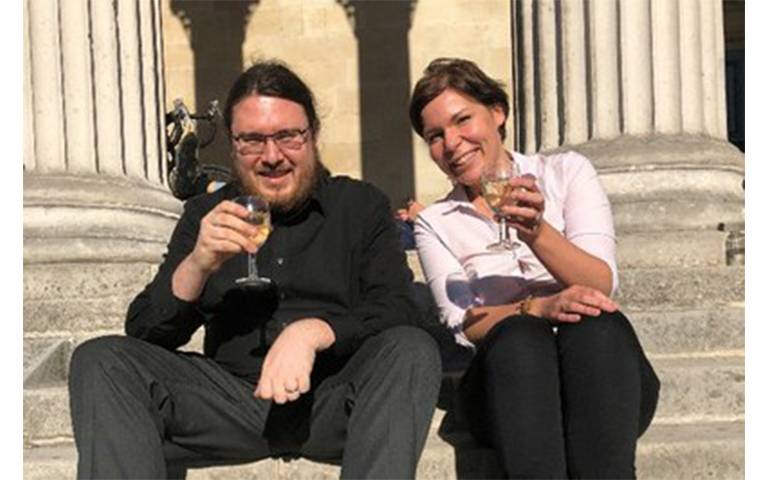Autumn Doctoral research successes
9 February 2019
UCL Geographers complete projects, from London and the Norfolk Broads to Portugal, Peru, Chile and Siberia

New doctorates have continued to be awarded in UCL Geography during the past term. With many PhD examinations taking place in the weeks before Christmas, we celebrate the New Year by highlighting these successes.
Dr Anastasia Ushakova
Using smart energy meter data to understand household and regional energy budgets.
Anastasia’s PhD was awarded on 9 October 2018. Her research was co-funded by the Economic and Social Research Council (ESRC) and Centrica, and the work was examined by Dr Shaun Bevan (Edinburgh) and Dr Colin Provost from UCL. Anastasia has secured a permanent teaching position at the University of Edinburgh.
Dr Kira Kempinska
Extracting patterns from social and mobility networks using generative models and Bayesian statistics.
Also completed in October, Kira’s work was funded by the UCL/EPSRC SECRET Doctoral Training Programme. Her examiners were Professor David Leslie (Lancaster) and Dr Simon Julier (UCL). Kira is now a Lecturer in GeoSpatial Artificial Intelligence and Machine Learning at the UCL Bartlett Centre for Advanced Spatial Analysis.
Dr Jennifer Adams
Developing models to quantify and reduce the uncertainty of satellite observations for climate monitoring.
Jennifer was supervised by Professor Mat Disney and Professor Philip Lewis, and has now taken up a European Space Agency Research Fellowship in Frascati, Rome.
Dr Soledad Martinez Rodriguez
May I Walk with You? Exploring Urban Inequality in Everyday Walking Practices in Santiago de Chile.
Soledad’s work was funded through a Becas Chile Scholarship, and involved close investigation of the pedestrian experiences of people living across different income areas in Santiago, her home city. She thus developed a micro-political understanding of how pedestrian practices are affected by and respond to different and unequal socio-spatial conditions. Her PhD was supervised by Dr Andrew Harris (UCL Geography) with Dr Filipa Wunderlich (Bartlett School of Planning), and defended on 26 October.
Dr Ana Maria Huaita Alfaro
Encounters at Lima’s inner-city marketplaces: negotiating fragmentation and common living in urban Peru.
Ana Maria’s ethnographic research investigated two inner-city market-places in Lima, assessing their roles in terms of both how they shape processes of urban fragmentation and act as common spaces and shared resources for the city. Her work was supported by the National Scholarship Programme, Ministry of Education of Peru, and supervised by Dr Andrew Harris. Her PhD was successfully defended on 28 November 2018.
Dr Pooya Ghoddousi
Global Nomads or Temporary Citizens: Transnational Mobility of Middling Iranians.
Pooya’s research focused on the micropolitics of everyday life among Iranians in London, using autoethnography and netnography to trace the emergence of four different diasporic assemblages. His research was supervised by Professor Jason Dittmer, and examined on 26 November, by Dr Nishat Awan, of Goldsmiths Sociology, and Professor Jenny Robinson (UCL). Pooya has taken up a Teaching Fellow post in UCL Geography. In the autumn, several students from the first cohort of the NERC Doctoral Training Programme (DTP) also successfully completed their PhDs:
Dr Sara Varandas Martins
The ecohydrology of temporary ponds.
Sara investigated the temporal and spatial (local and regional) dynamics of zooplankton communities in temporary ponds in northwest Ireland and southwest Portugal, responding to multiple environmental, physical and hydrological drivers. Her work was supervised by Dr Helene Burningham, and examined by Professor Laura Serrano from Universidad de Sevillla and Professor Helen Bennion (UCL).
Dr Lucy Roberts
Lucy’s research was concerned with palaeosalinity reconstruction on the Norfolk Broads using trace-elements in ostracod shells from recent (the past few hundred years) sediment cores. Her work was co-supervised by Professor Jonathan Holmes (UCL), with Professor David Horne (QMUL), and examined by Professor Ian Boomer (Birmingham) and Professor Helen Bennion (UCL).
Dr Poppy Harding
Ecosystem responses to abrupt late Quaternary climate change in southern Siberia.
Working closely with Russian colleagues based at the Institute of the Earth’s Crust in Irktusk, Poppy used diatoms and stable isotopes of diatom silica to reconstruct palaeoclimate over the past 30,000 years. Supervised by Professor Anson Mackay, her examiners were Professor Philip Barker (University of Lancaster) and Professor Chronis Tzedakis (UCL).
 Close
Close

